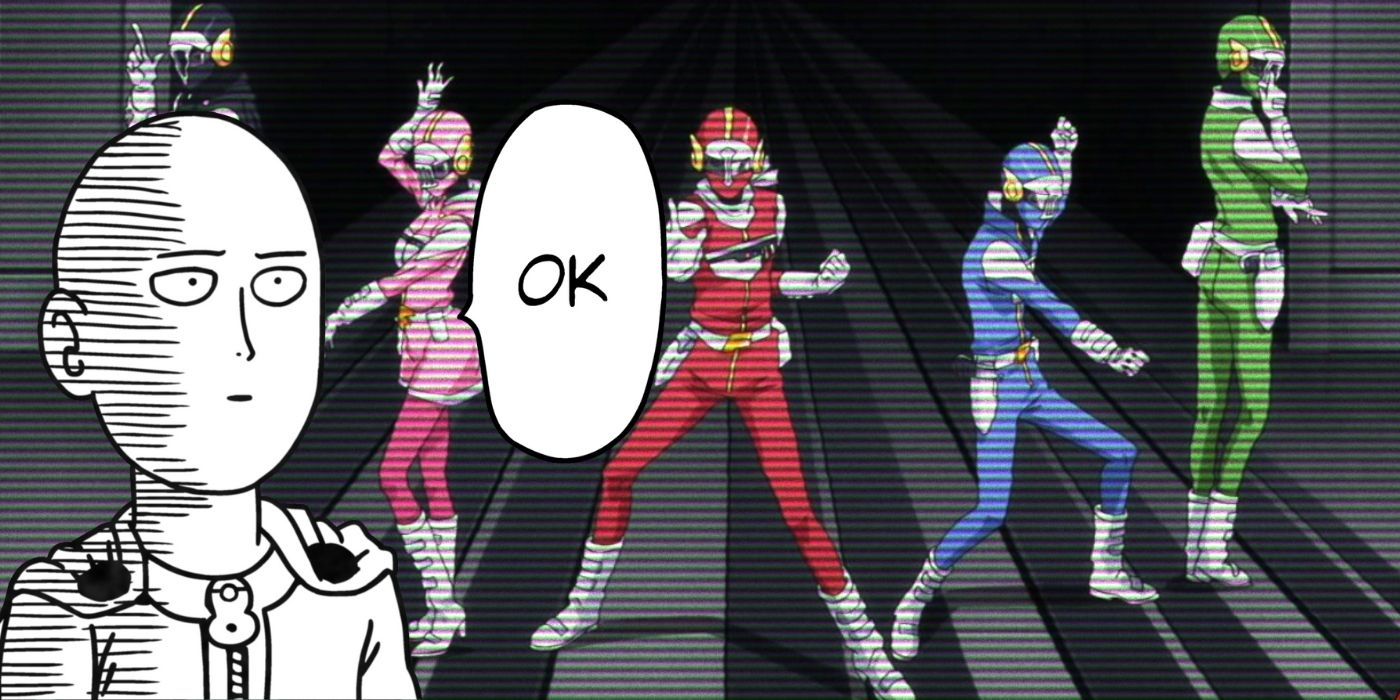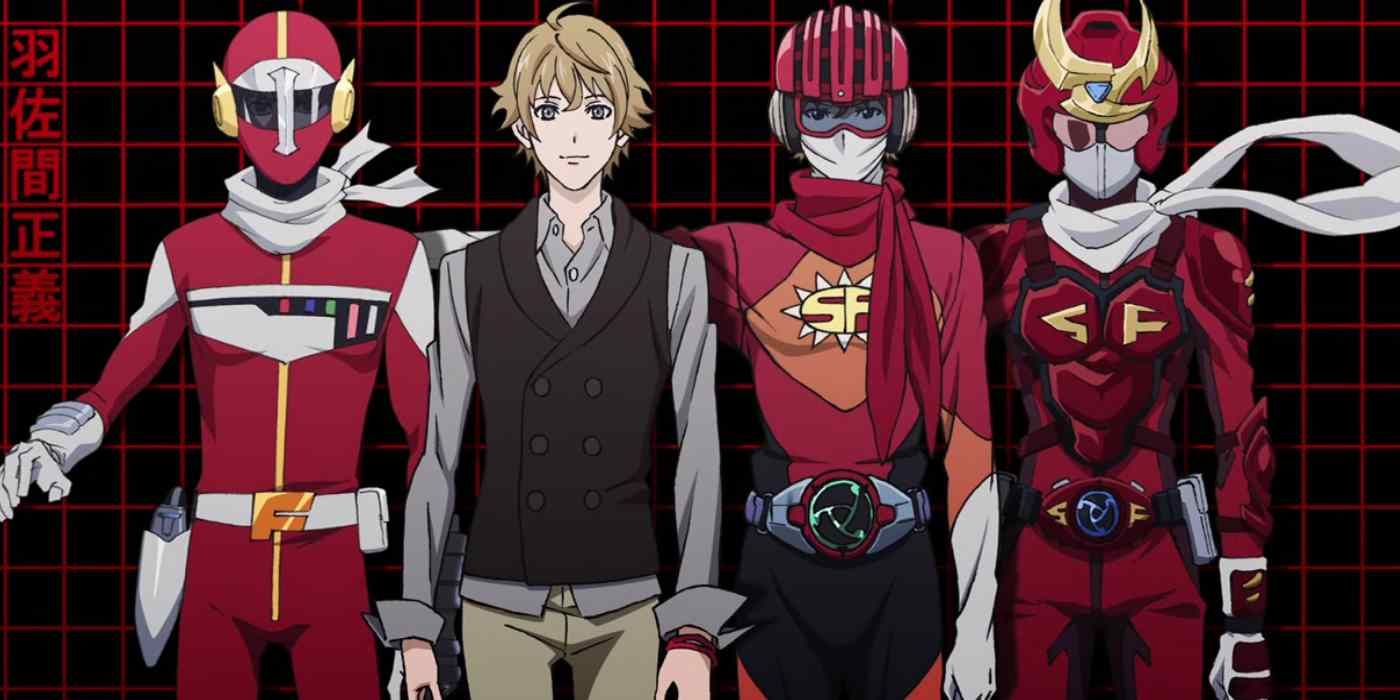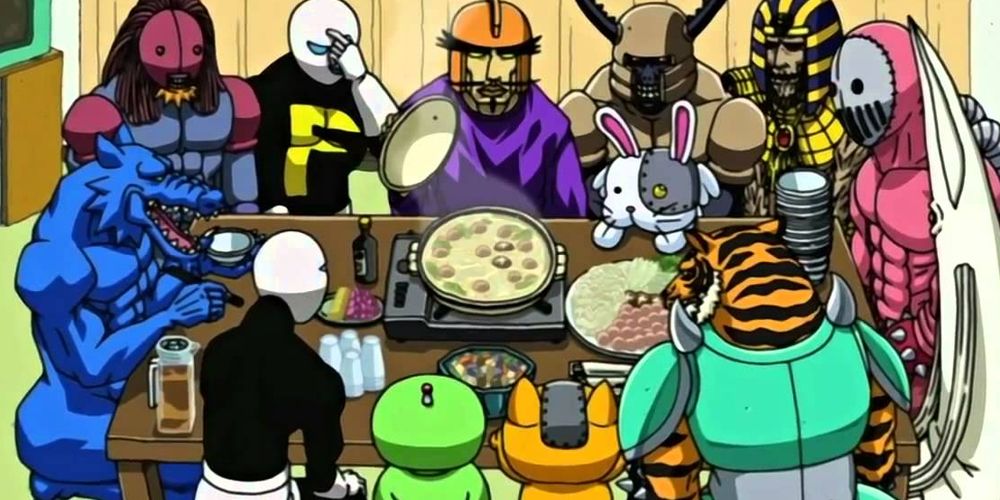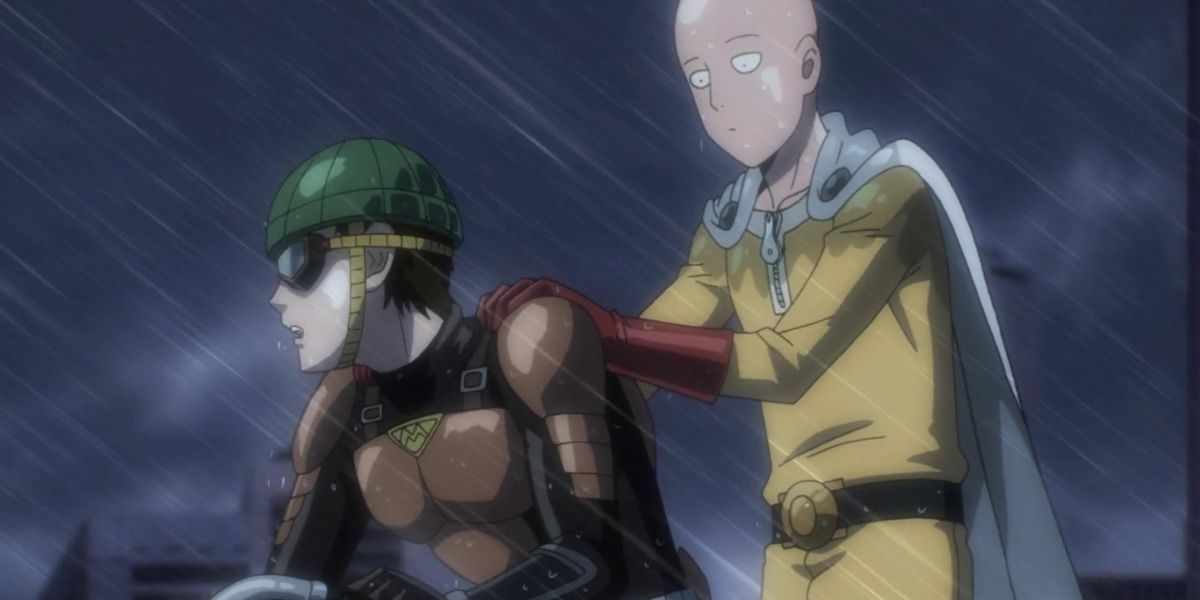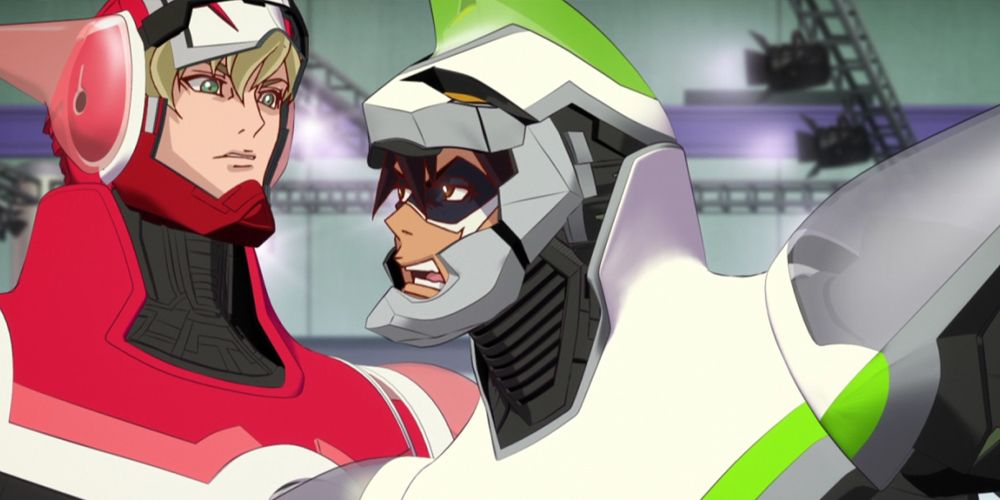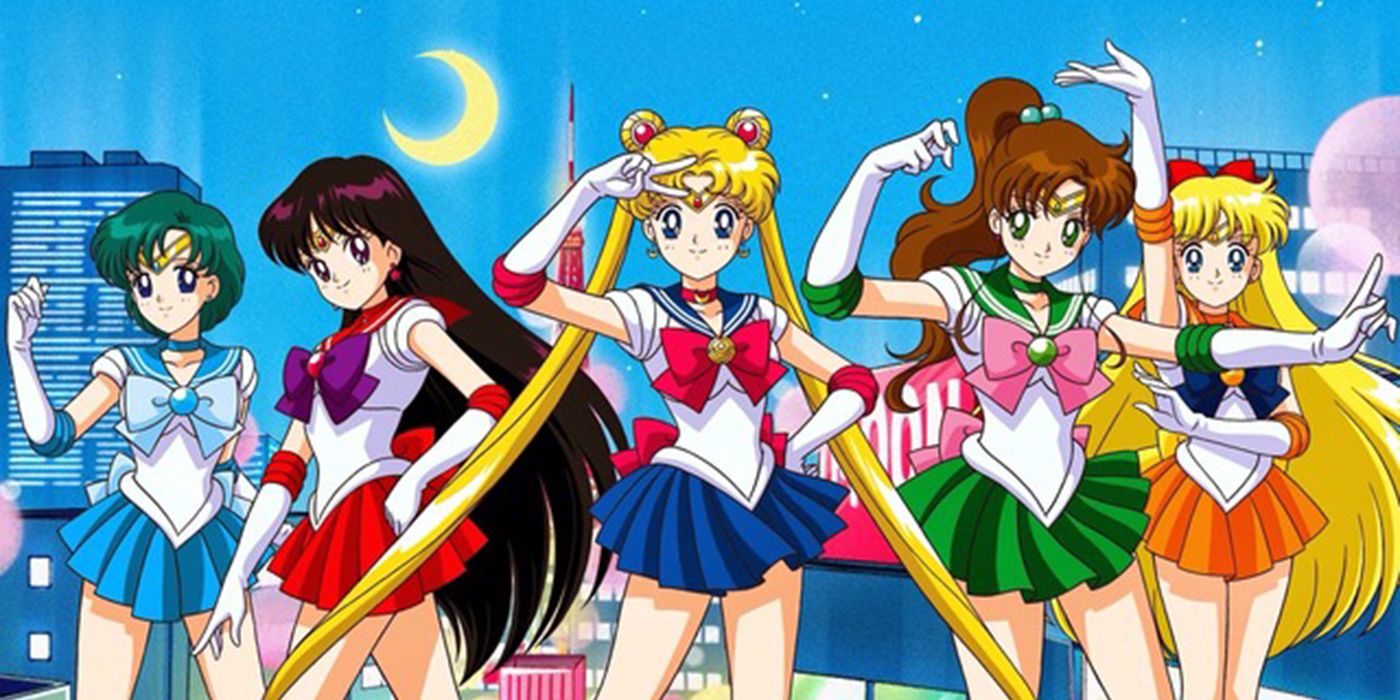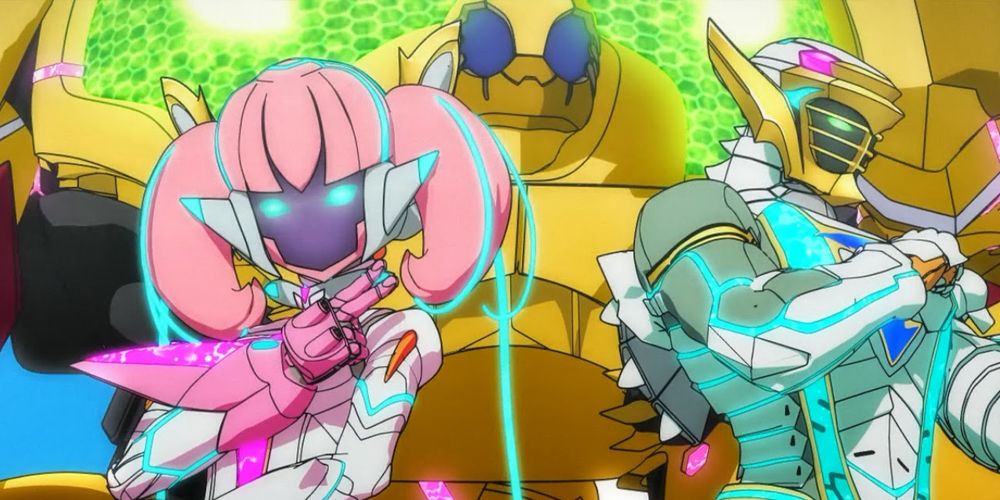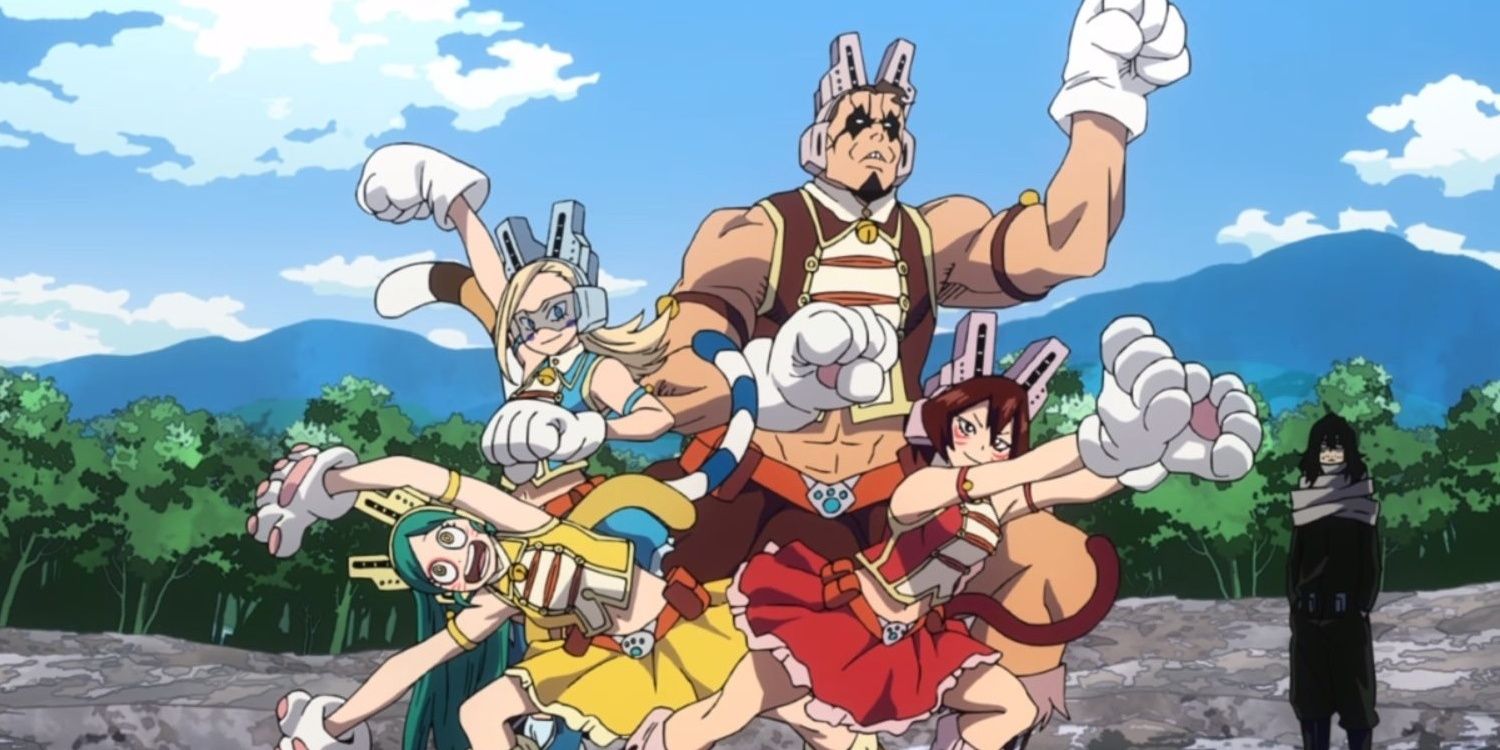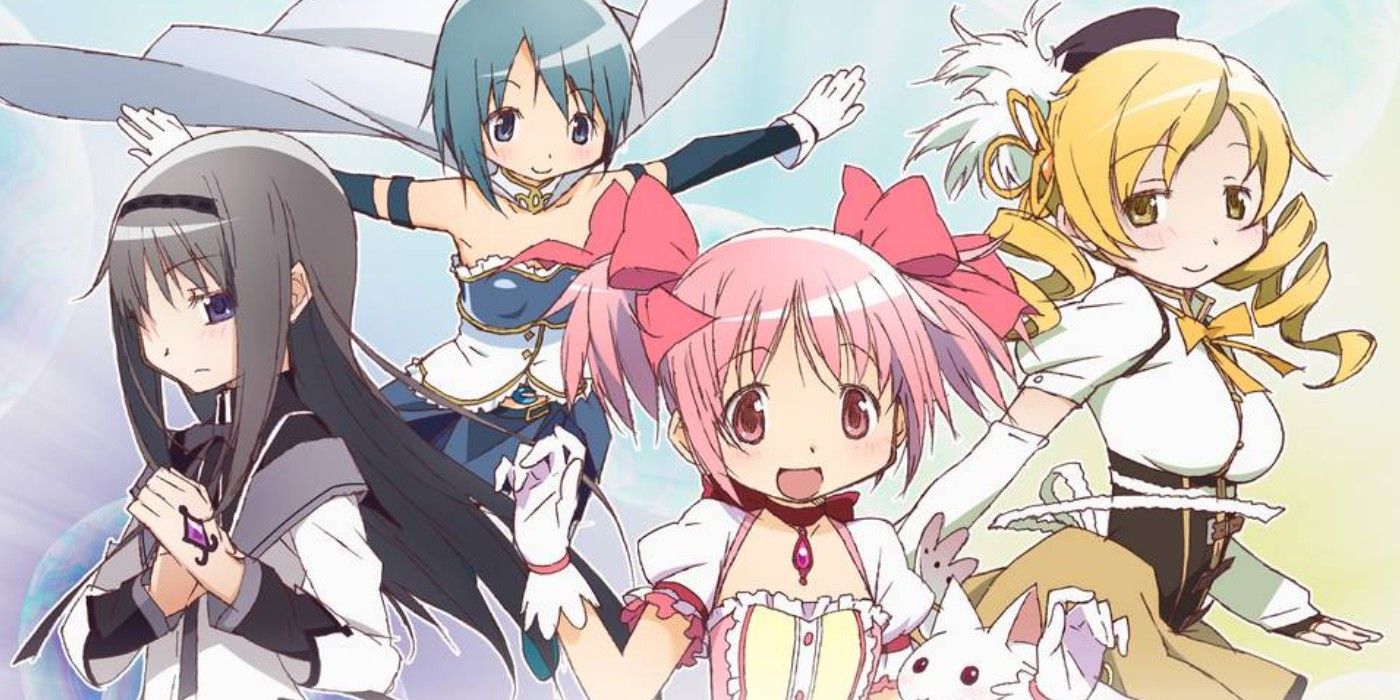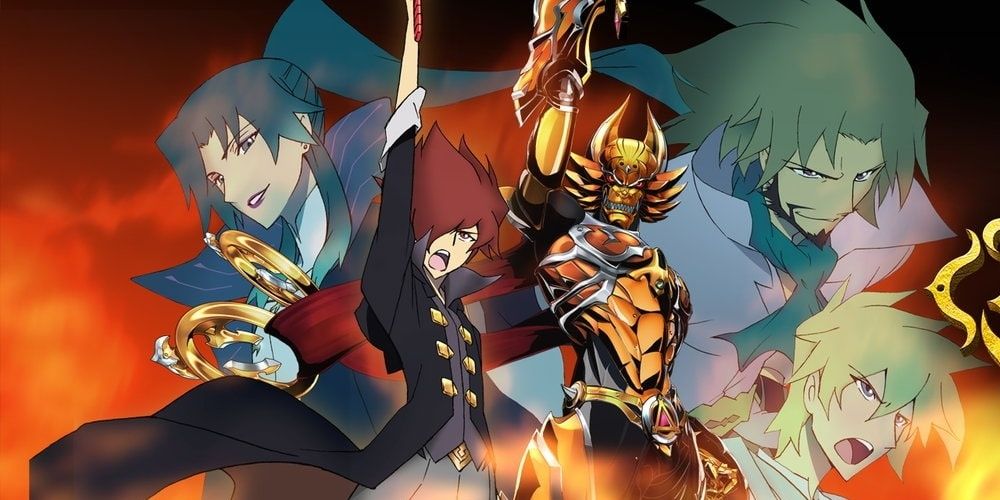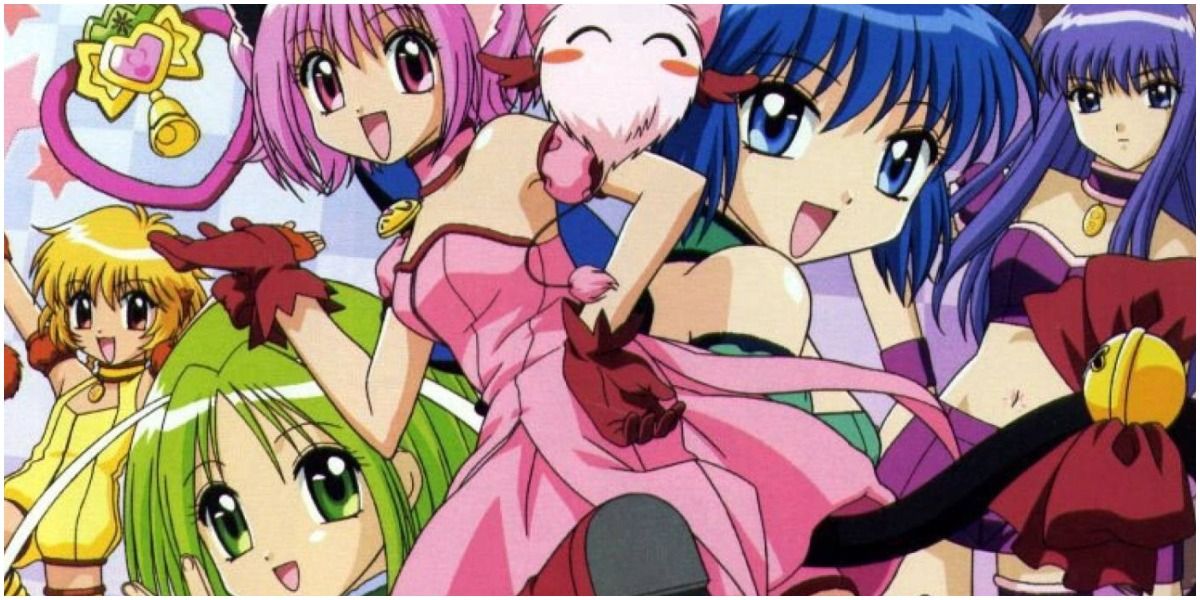"Sentai" is a word with more than one meaning. Super Sentai refers to the superhero live-action series which spawned Power Rangers in the US, but the actual translation of "sentai" is "squadron" or "troop." It's no wonder, then, that sentai anime feature teams of superheroes working together to defeat monsters, villains, or evil in general.
The word is less important than the vibe that defines such series: think teamwork, collaborative fighting robots, bright colors, transformation sequences, and Kamen Rider-esque costuming. Many of today's most prolific mangaka grew up watching tokusatsu series, and this inspired them to pay homage to the subgenre in their own work. Ranging from cult favorites to mainstream success stories, sentai-inspired superhero anime remain legion.
10 Samurai Flamenco
Some series wear their influences proudly. Samurai Flamenco, directed by Takahiro Omori, is one such series. While Omori is best known for such popular hits as Durarara!!, Baccano, and Kuragehime, Samurai Flamenco feels more like a personal pet project gone awry.
The protagonist, Masayoshi Hazama, decides to become a superhero despite lacking powers. While this isn't the first story to tackle this idea, the first few episodes of the series are a satisfying blend of introspection and humor. The show quickly and deliberately goes off the rails in a genre shift that divided fans. Whether the series pays off is up to the viewer, but anyone interested in sentai can't skip Samurai Flamenco.
9 Astro Fighter Sunred
Astro Fighter Sunred is one of anime's most criminally underrated series. A direct send-up of Super Sentai that also teases facets of daily life in Kanagawa, there are few series that balance humor and homage so well. The series protagonist, Sunred, is a jerk at worst and a subpar hero at best, and certainly a terrible boyfriend to boot.
He is most commonly depicted smoking while wearing a t-shirt and his sentai mask (the audience never sees his face) and spends his time lazing about or abusing local villains who are genuinely nice people. It's curious that in a culture where One Punch Man has found such widespread acclaim, so few otaku even know about Sunred. Hopefully, this cult classic will one day get the love it deserves.
8 One Punch Man
Though One Punch Man began as a poorly-drawn amateur webcomic, it was destined to become of of the biggest success stories in the medium, becoming one of the most popular series of the past decade based almost entirely on the quality of its satire. The first season, produced by Madhouse, enhanced the story with stellar animation and killer fight scenes. But Saitama is more than just a comedic parody of traditional sentai heroes. If heroism becomes too easy, is it still really heroism? Saitama's curse is that he's searching for meaning in a world that doesn't have much to offer. There's nothing so relatable as that.
7 Tiger and Bunny
Sentai has a lot to do with costuming, and almost any screenshot from Tiger and Bunny establishes its firm roots in the subgenre. And because Tiger and Bunny aired in the midst of Marvel Studios' meteoric rise and pays almost as much attention to Western hero tropes as Japanese ones.
Even so, the series is memorable for its endearing character growth and incisive critiques of reality television and corporate culture. Heroism has become a business in the Tiger and Bunny world, complete with corporate sponsorship and corruption, and the heroes struggle to remain moral in a world that may have forgotten what heroes are for.
6 Sailor Moon
Sailor Moon needs no introduction. Thanks to the franchise's incredible impact, many popular modern sentai-inspired series belong to the magical girl subgenre. Sailor Moon began an empowering trend that has fueled shoujo ever since, reclaiming superhero storylines to appeal to an audience of children and girls in particular.
Tropes aside, the original series subverted a lot of genre expectations and pushed several progressive themes of identity, queerness, and strength. The franchise's enduring popularity proves that sentai can and should represent everyone.
5 Gatchaman Crowds
Gatchaman is considered one of the oldest sentai franchises. The first series, Science Ninja Team Gatchaman, aired almost fifty years ago in 1972 and is credited with establishing the five-member team structure that countless other shows and even idol groups have since mimicked. Gatchaman is older even than Super Sentai and retains a dedicated fanbase. In 2013, the Gatchaman Crowds anime reboot reinvigorated the franchise for a new generation.
4 My Hero Academia
My Hero Academia has always been creative, but it has never been especially original. The show owes a lot to series that came before it, but it really has perfected a lot of the elements that fans adore about the sentai genre. It's nearly impossible to pick a favorite character or superpower, and the show delights in paying homage to a wide range of tropes: an underdog protagonist initially without powers, absent father figures, a mentor hero brought down to normal, celebrity superheroes, and countless more. The success of BNHA lies in how much it delights in these tropes and renders them lovable again.
3 Puella Magi Madoka Magica
Sometimes paying tribute means twisting the rules, and there are few series as beautifully twisted as Puella Magi Madoka Magica. Fans often point to the specific moment when the tone of the show shifts irrevocably from familiar to profound, but even from the first episode Shaft and the series creators were carefully planting the seeds of subversion. Madoka is a delicate balancing act between the five-character color-coded magical girl sentai tropes we've come to know and philosophical questions that challenge expectations.
2 Gar0: The Animation
The earliest sentai shows, like the original superhero comics, were meant for children. While this is still sometimes the case, the genre has really matured, and that's apparent in newer franchises like Garo: The Animation. Based on another classic tokusatsu live-action series, this series of several anime reboots is a curious blend of fantasy informed by actual world history and sentai tropes. Garo features team-fighting and nostalgic armored costumes, but it's set in places reminiscent of everywhere from Heian Japan to modern New York City.
What sets it apart most of all is the general maturity of the series. Garo contains sexual themes and violence decidedly aimed at older audiences, perhaps a salute to the kids who grew up watching the source material decades ago.
1 Tokyo MewMew
Tokyo Mew-Mew wouldn't exist without Sailor Moon, and it's certainly far from a serious series. But just as sentai has inspired comedy, drama, and deep introspection, it has also inspired fluffy content that seeks simply to entertain. It is a good reminder that many shows are still for children, and should be, and a series doesn't have to be life or death to teach lessons of heroism and teamwork.

